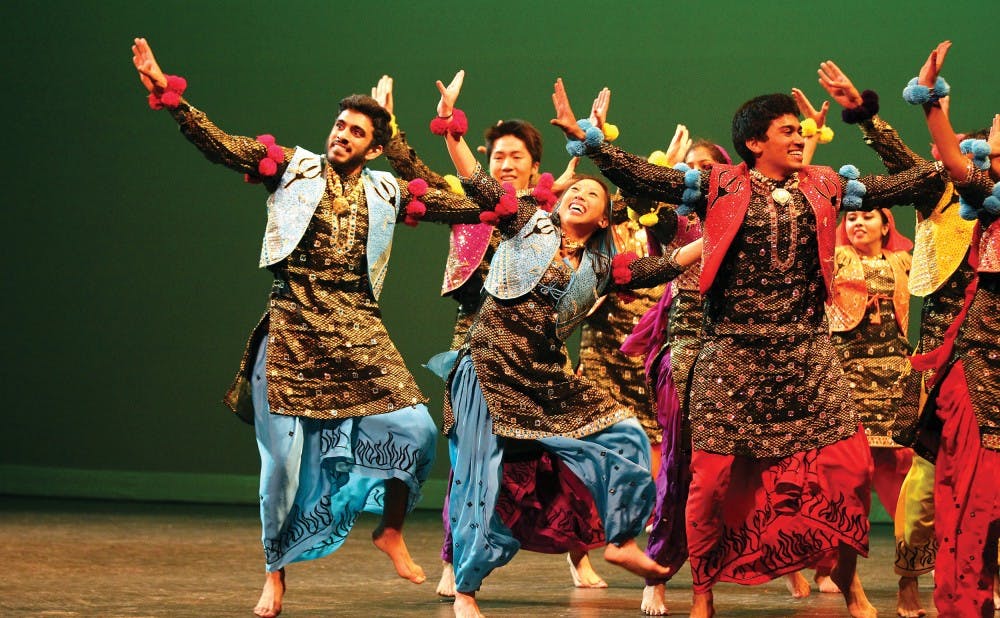Get The Chronicle straight to your inbox
Sign up for our weekly newsletter. Cancel at any time.

Physical and academic rigor

Beyond the classroom

An education to fall back on
Dowell also feeds his creative dance outlet at the new American Dance Festival office on Broad Street. Founded in 1934, ADP has been known to encourage and support up-and-coming modern dance work by both “established and emerging choreographers,” according to the organization’s website. Given its more progressive edge, some students have found that they are able to stretch their dance range through the different intensives and programs they offer.
During Dowell’s time as the studio assistant at ADF, he was also offered the opportunity to perform with the Gaspard & Dancers Company, an unusual experience at Duke or in Durham but made possible by an unlikely connection—the founder of the dance company, Gaspard Louis, is married to ADF Director Jodee Nimerichter. Dowell’s unique chance to perform in a professional company while still pursuing a full academic career at Duke doesn’t necessarily mean that his two identities never clash.
“Sometimes I wish I went to a conservatory because all I want to do is dance,” Dowell said. “But there are other days when I just want to learn something. It’s difficult to reconcile these two different identities, but it’s nice to have education to fall back on if I don’t become a dancer.”
For most students, education would never cross their minds as a back-up plan. If anything, their education becomes the foundation for their career aspirations. For those on a more preprofessional track, what they learn in class is actually transferable to a professional environment. Yet Dowell said he has come to find that, in the end, this type of environment has strengthened his identity as a dancer.
“I would definitely identify first as a dancer,” he said. “It’s weird to say this, but I feel like Duke has reinforced that on me—I’m a dancer first and a student second. I want to dance professionally.”

Beyond the Duke bubble
Kristie Landing, Trinity ’13, questioned her dreams to become a professional dancer as an undergraduate. When her friends around her were slowly searching for jobs in business or preparing for graduate schools, she took a leap of faith and moved to New York City after graduation to find dance opportunities.
“I definitely feel more confident now that I’m here,” Landing said.
While her competitors may have attended conservatories and had a more dance-focused college experience, she feels that Duke has allowed her to feel strong and comfortable about herself as a dancer.
“The program helps you realize you’re a beautiful person and dancer,” she said. “You’re not dragged down in that unhealthy mindset a lot of dancers find themselves in.”
Outside of the intimacy of the Duke Dance Program, where the desire to perform for a dance company onstage is more common, if not tangible, dancers can often feel alone in their pursuits.
“It’s sometimes scary because I forget how many people out there are actually trying to perform like me because so few of them are here at Duke,” Brown said.
Every year, Brown attends the American College Dance Festival where college dancers from different regions come to take classes and perform together. There, Brown is reminded that more than just the 12 people in the dance program are hungry for performance the same way she is.
“If the festival were my everyday, I would get discouraged,” she said. “Being here I get to become more of an individual in the type of dancer that I am.”


